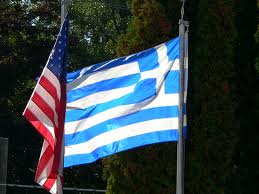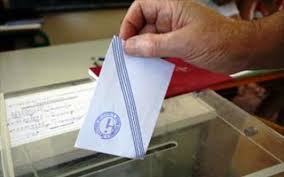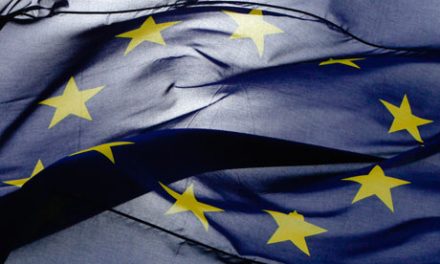A letter to the Kathimerini’s editor, commenting on Alexis Papachelas’ article “Hellenism in America at a crossroads“
By Nick Larigakis, American Hellenic Institute President
Dear Editor,
On behalf of the American Hellenic Institute (AHI), I take strong exception to Alexis Papachelas’s December 20 column, “Hellenism in America at a crossroads.” In his flawed attempt to assess the Greek-American lobby’s role, Mr Papachelas demonstrates a lack of understanding of what transpires in Washington regarding the lobby’s effectiveness.
Papachelas writes about the perceived need for the Greek-American lobby to play a role, especially with regard to Greece’s strategic relationship, but somehow overlooks an AHI-hosted panel discussion and presentation on the topic, held in Athens just last month, at which one of his own colleagues at Kathimerini, editor-in-chief of Kathimerini English Edition, Tom Ellis, moderated.
In recent months, AHI has hosted presentations for high-level Greek military officials to convey Greece’s strategic importance to key officials and representatives of the defense sector. US Ambassador Geoffrey Pyatt recently commended AHI for these initiatives at AHI’s November 29 presentation in Athens: “AHI is one of the shining examples I often use of how Greece’s large American diaspora community can most constructively work with Greece and help us strengthen our bilateral relationship. I would count some of the programs that Nick [Larigakis] and Tom talked about as important examples: AHI’s indispensable support for Prime Minister [Alexis] Tsipras’s recent visit to Washington, the tremendous programs that Nick and the team put together for Admiral [Evangelos] Apostolakis, General [Alkiviadis] Stefanis, Admiral [Nikolaos] Tsounis, all of our key partners… But these are examples of AHI’s truly unique role as a facilitator of the strategic relationship between the United States and Greece.”
Further, in our effort to raise awareness about Greece’s strategic importance, AHI has invested $100,000 toward the publication of two white papers, one by the Hudson Institute about the value to energy security the eastern Mediterranean possesses, and the second by the Lexington Institute about the importance of NSA Souda Bay, Crete. The latter white paper was released on Capitol Hill with Greece’s current defense minister in attendance.
Working with the US Congress and Obama Administration, AHI has scored a significant policy victory when the quasi-US governmental agency, Overseas Private Investment Corporation (OPIC), changed its position to state it is authorized to do business in Greece if there are “strong development or foreign policy reasons to proceed.” For nearly two years, AHI pressed Obama Administration officials and members of Congress on the fact that precedent existed for OPIC to operate its programs in EU countries when economic conditions and policy reasons support the need. AHI cited OPIC’s work with Portugal and Malta along with Northern Ireland and other central European countries.
Moreover, AHI worked with our Capitol Hill allies to insert appropriations language for Greece’s International Military and Education Training (IMET) program to increase the level of funding for Greece, which Greece’s IMET program had not realized for 10 fiscal years, amid a challenging budgetary environment. Although Congress has yet to finalize the FY2018 appropriations process, we will continue to work to see this process through.
In addition, I’m proud to share the thoughts of the co-chairs of the Congressional Hellenic Caucus, Congresswoman Carolyn Maloney (D-NY), and Congressman Gus Bilirakis (R-FL), about AHI’s work: “As co-chairs of the Congressional Caucus on Hellenic Issues, we rely on the American Hellenic Institute’s fervent advocacy of the rule of law and focus on pressing issues in Greece and Cyprus that demand Congressional attention. From the hands of legendary Gene Rossides to Nick Larigakis’s leadership today, AHI continues to set the standard of passionate, reasoned education and advocacy. For the 20-plus years of our Caucus’ existence, AHI has been a principal contributor and advisor that has significantly helped shape the Eastern Mediterranean geopolitical landscape.”
Annually, the AHI Foundation conducts a foreign policy trip to Greece and Cyprus for college students so the Greek-American community’s young leaders can learn and witness firsthand the policy challenges that Greece and Cyprus face. Since the program’s inception nine years ago, these students have brought that knowledge back to the United States, have shared it with their families and friends, and have published their experiences and findings. Furthermore, alumni of the program have gone to careers in Washington, working on Capitol Hill, in the administration, and with prominent think tanks.
In October 2010, I participated as a panelist at a landmark AHEPA-hosted forum on the emerging relations between Greece and Israel. Since then, AHI, along with AHEPA, B’nai B’rith International and the Conference of Presidents of American Jewish Organizations have embarked on two Leadership Missions to Greece, Cyprus and Israel in 2014 and 2016. We will embark on our third Mission this January. This groundbreaking initiative is now being replicated by other groups.
As far as I’m aware, the Greek government has been fairly vocal that relations between the United States and Greece are the best they have been. Is this by accident? Is this by the work of only one organization? No. Each and every organization has played a role – and has played it very well.
Perhaps it’s incumbent upon the Greek government to understand how effective lobbying works in Washington and hire the proper lobbying firms, like Turkey has, and continues to do, at costs of millions and millions of dollars.
Therefore, I must ask, why didn’t Kathimerini report on all of these events, programs, and initiatives? Where was the curiosity among its journalists to interview our enthusiastic and eager-to-learn student groups and our fact-finding delegations from across the Greek and Jewish diaspora? Why has the newspaper been unable to see what others clearly have seen?
Unfortunately, it is disappointing that an experienced and distinguished journalist such as Mr Papachelas, who spent several years working in Washington, completely missed the target in his assessment of the effective role Greek-American organizations play.
Sincerely,
Nick Larigakis
President, American Hellenic Institute



















